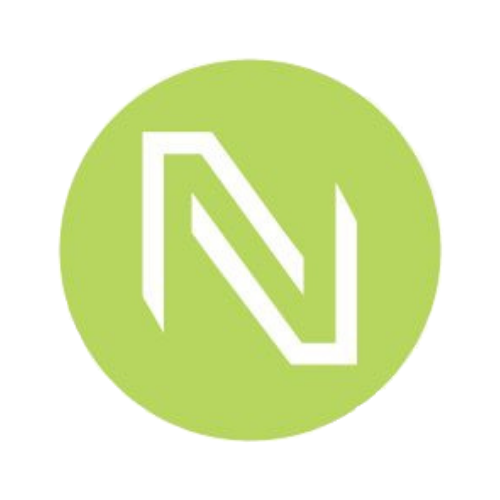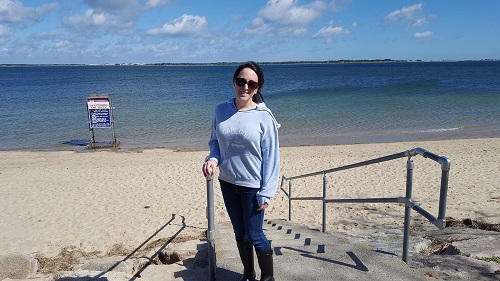An Honest Conversation Between Millennials About Why Everyone Hates Millennials
What happens when two Millennial women who hate being judged for being “Millennials” sit down to talk about Millennials? Here’s what Carrie Majewski, founder of the Women in Leadership Nexus, and Julia Wells, founder of Conscious Compass, had to say about the hot-button issue…
Carrie: Julia, I absolutely loved your Facebook post the other day that said: "What would be possible in the world if older generations stopped writing off millennials as lazy/entitled/easily bored and instead embraced the fact that we CARE deeply, we dedicate our time, money and energy to working on things that matter to us, and we refuse to settle for mediocrity?" I don't know if you know this about me but I absolutely DETEST the stereotypes surrounding Millennials and take great offense to being called a Millennial because of the negativity surrounding that term. What prompted you to write this post? Was there a specific incident?
Julia: ‘Gotta love the power of a good Facebook post! So, the post came from a mix of things. I had been listening to an episode of “Pod Save The World” talking about how Millennials ARE so driven to make a difference once they find something they care about, and then seeing a post with someone complaining about Millennials. I am constantly surrounded by the most incredible women who are up to amazing things and I get really frustrated when we get lumped in to this lazy Millennial group. Do we present a certain challenge to older generations that might not be able to relate or have a different value system? Sure. But we need to stop making that a bad thing. Companies, communities and the planet have huge unrealized opportunities and it’s time to learn how to create an environment and attitude that encourages our generation to tackle the very real challenges we face (and celebrate the work already being done, because there’s a ton).
Carrie: I couldn't agree more. For some reason the sweeping belief seems to be that Millennials as a whole are contributing to the demise of all things believed to be sacred—like the sanctity of the nuclear family, the notion of paying your dues before climbing the corporate ladder or the beauty of having dinner at a restaurant sans smartphone. But I've long believed that behavior is not influenced by a single generation but rather that individual's unique experiences, core values and belief systems. I can tell you for a fact that I can have many a dinner conversation that doesn't involve a cell phone, and I don't need a nap room at work to keep me happy!
I don't know about you but over the years I've found I fight ferociously to keep my age in the workplace under wraps (29). I'll laugh about ‘80s pop culture references even though as a child born in 1987 most references escape me. I overthink everything I wear, wondering if that one shirt will be a dead giveaway that I am still in my 20s. Because, dare my age get out, I am horrified to think that the perception my employees have of me would change if they knew I fall into the Millennial generation. And that's a real shame when we know there are powerhouse Millennials out there.
Julia: Even if we are contributing to the demise of certain traditions (getting married, having kids, buying a home), I think it’s also a cool opportunity to see what else is possible when we have different values and visions. AND, how the two can co-exist. The thing I love about Millennials is that we tend to be extremely open minded and curious about how we can always make things better. We tend to consider a broader, more diverse audience—groups that have often been passed over. There are so many amazing Millennial run businesses serving minority populations that traditional big business has skipped over in the past. I LOVE this! So what if we need a nap while changing the world? The phone at the table is an entirely different conversation though. I have my own frustrations with the lack of face-to-face communication skills these days and what it means for connection and community in the world.
As for the age thing, I can totally relate! At 19 I was running a $9 million retail store with 100+ employees. One day an employee found out my age and told me she shouldn’t have to listen to me since I was younger. My manager was just a little bit older than me and I know she worked really hard not to let anyone see her age in fear that they might lose respect. For me, I learned this lesson young and it served me so well when I went in to the corporate world and was managing groups and teams with people much older than me, some who had worked there 30-plus years.
My personal philosophy is that honesty and communication need to be present for there to be a solid foundation. Whenever we are working to hide/prove/overcome something, we are never as present as we can be when we just own it and have an honest conversation. For me, that definitely took practice, but by the end of my time in the corporate world, it was something that both employees, peers and superiors all commended me for doing an exceptional job at. I think it’s time we start celebrating what we’re accomplishing at such young ages and having open and honest dialogue about the challenges from both the leadership perspective and the being led perspective.
Carrie: I can relate to managing people older than yourself. I held my first management role at 25 and since then I have rarely had people younger than me working for me. I've also always been the youngest on my company's leadership team, often sitting alongside 40 and 50-year-olds with decades of experiencing managing. There was a time when I used to feel uncomfortable with this... wondering if I was as worthy as others. Worried that others were judging my place in the company. But then a great mentor reminded me: "No one thought Mark Zuckerberg was too young to start Facebook." She was right. He was just a trailblazer who believed in himself enough to build an empire.
My hope for Millennials—and all generations—is that we stop apologizing for success, especially women. I have spent so much time in my career making excuses for my success ("I was in the right place at the right time" or "I got lucky to know so-and-so") versus leaning into my unique talents, experience and creativity that got me to where I am. And leaning in doesn't mean you are entitled. It means you are celebrating your wins along the way, hopefully staying grounded about all you still have to learn, but recognizing your unique gifts and contributions to society.
I read this interesting article in the Boston Globe the other day titled "Millennials ruining everything? It’s an age-old accusation." The article contends that "Millennial bashing" has actually been occurring in literature for hundreds of years. “There’s [always been] rampant worry that society, as we knew it, was crumbling,” says Boston College professor Eric Weiskott. “And that the people to blame for that were the youngest generation.” In other words, are we just getting blamed and typecast because we happened to be the disrupters, just as the women's rights activists were in the 1800s? Are we just the inevitable victims of aging societies?
Julia: Sounds like it! Wouldn’t it be awesome to finally break that pattern? I guess it’s kind of true, even with the next generation coming up, I already hear my friends complaining that they lack social skills, motivation, work ethic, etc. So we’re already repeating that pattern instead of teaching them to embrace what’s unique about their generation. I think a lot of it also comes from competition mindset and scarcity and being worried that there’s not enough for all of us. Which simply isn’t true.
The world has SO many unique challenges that need solving, companies and organizations that need leading, causes that need champions, etc. We have to start embracing what does make us unique and amazing AND how to cultivate even more of that. When people are working in their respective strength roles that energize them and allow them to do their best work, amazing results are produced. I personally feel like this is something I’m still learning, but I’ve been lucky to have coaches and mentors teach me how to identify and explore these strengths. A couple of my favorite assessments have been the Stand Out Report, StrengthsFinder, and MBTI test. I think you mentioned that you’ve used at least one of these for yourself and your teams...
Carrie: I am a huge fan of StrengthsFinder. I took it two years ago when I was with my previous company, along with the rest of our leadership team and it gave me great insight into my natural tendencies. When we know more about ourselves—our strengths, our social style, our personality type—we can lead and collaborate more authentically. And, in so doing, people can see us for who we are individually, as opposed to the generation in which we fall. I'm curious, as someone who works largely with Millennials and coaches them, where do you see our generation struggling the most? Conversely, where are we dominating?
Julia: One of the huge things I focus on and have so many clients struggling with is caring about what we think people think. This isn’t exclusive to our generation by any means, but it’s what holds us back in everything we do. While the fears feel very real and uncomfortable, they are often things we make up ourselves. The reality is, most people are so worried about themselves that they aren’t even thinking about what you’re doing. But it keeps us from going after our big scary dreams and playing full out which leads to a lot of self judgement, resentment, worry and procrastination.
On the flip side, I think we are doing a phenomenal job at living a really values-centric life. We are learning to vote with our dollars, support purpose-driven businesses (and start them), and forcing companies to care. Just selling the cheapest product isn’t enough for us. We care about quality and purpose and it’s shaping how we live, work, and lead.
Carrie: I love that you say living a "values-centric life." I completely agree that this is an incredibly passionate, fierce and caring age group. But one thing I have noticed is we appear to be a generation with perhaps the largest professional divide yet. Because our group is more entrepreneurial than past generations (with Millennials "discovering entrepreneurship significantly earlier than boomers did" according to the 2016 BNP Paribas Global Entrepreneur Report), you have this interesting mix of Millennials who are holding CEO or C-suite positions, juxtaposed with other Millennials who are still entry-level roles. I've seen that it can create a "not good enough mentality" in some Millennials, who can't quite figure out how to carve their own path. I have some friends that lament the corporate ladder, while others believe there is no ladder and that their dreams are possible.
Julia: I think for me the opportunity within all of it is that we can bring this entrepreneurial mindset to anything we do to make it even better. Whether we want to run our own company and hold high level positions or we are OK working our way up the ladder, there is increasingly more space and need for this mindset. Innovation is key to solving the big problems we face and I think our generation does really well at this when given the right freedom, tools, and empowerment. We’ve seen more and more companies start in house incubators and spend a lot of resources to foster this mindset which is really cool! Sometimes it spins in to someone starting their own business and other times it leads to an in-house change or expansion.
Carrie: Totally agree. So I know we could go on-and-on with this discussion (so much to discuss!), but to wrap up, what is the one piece of advice you would give to our generation?
Julia: Learn and leverage your strengths! Go beyond just what you’re good at and look at what energizes you. It doesn’t matter if this is inside a company or for yourself. This is what will give you the energy to work hard and create massive impact. Find people, environments, and opportunities to foster and deepen these strengths every chance you get. What about you? What would your piece of advice be?
Carrie: Don't hide your talents. I struggled with this when I first started out in my career, concerned about ostracizing myself from my peers or being viewed as "the teacher's pet" with my boss. But hiding your talent means not giving your organization, family, friends and the world your best—and everyone deserves your best! As I wrote in a previous blog post: Don’t ever hide—or apologize—for being talented and earning recognition. The minute you apologize for your talent is the day you resign to not living to your fullest potential. Instead, be fierce, be talented and be humble.
When Carrie and Julia are not spending their time writing about passion topics like leadership, culture, purpose and development, you can find them leading workshops, speaking from the big stage or working one-on-one with other powerhouse women.
- To connect with Carrie, click here.
- To connect with Julia, click here.




